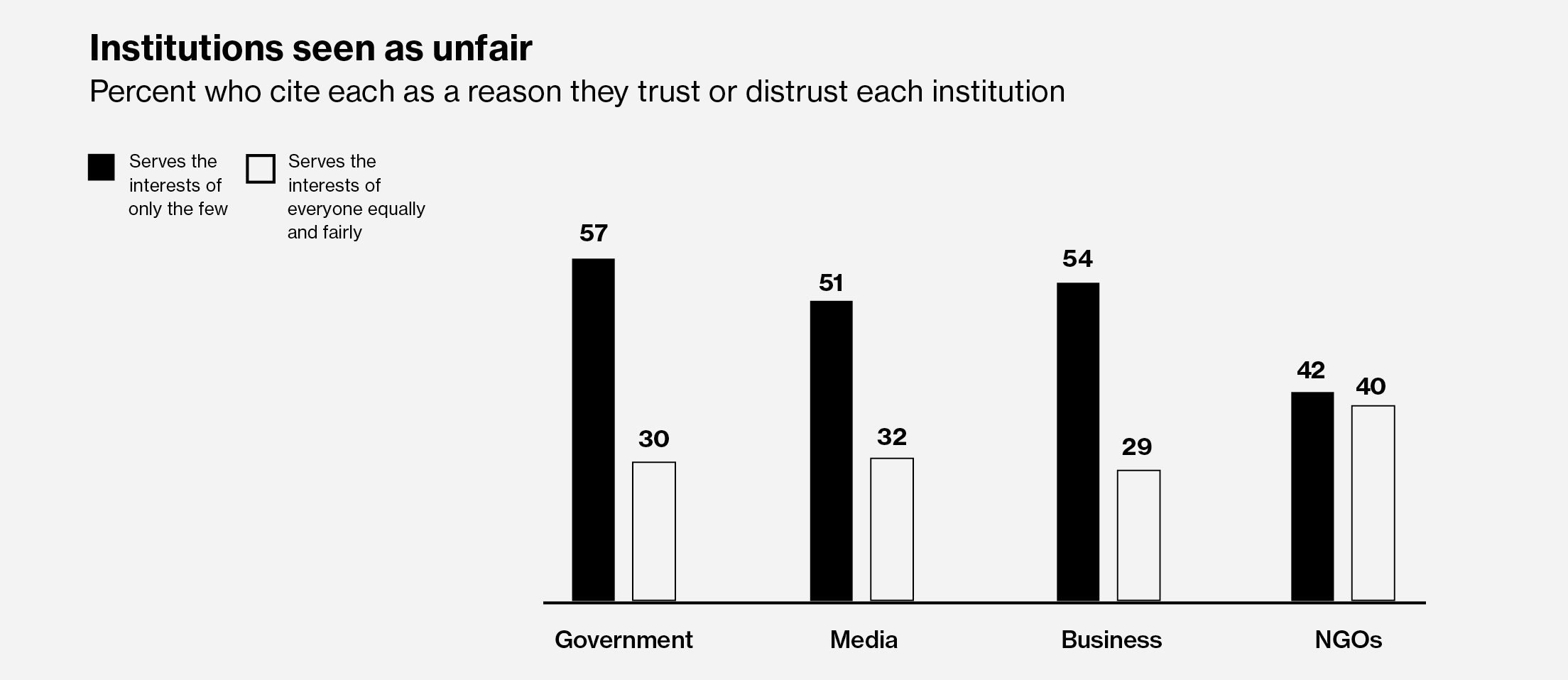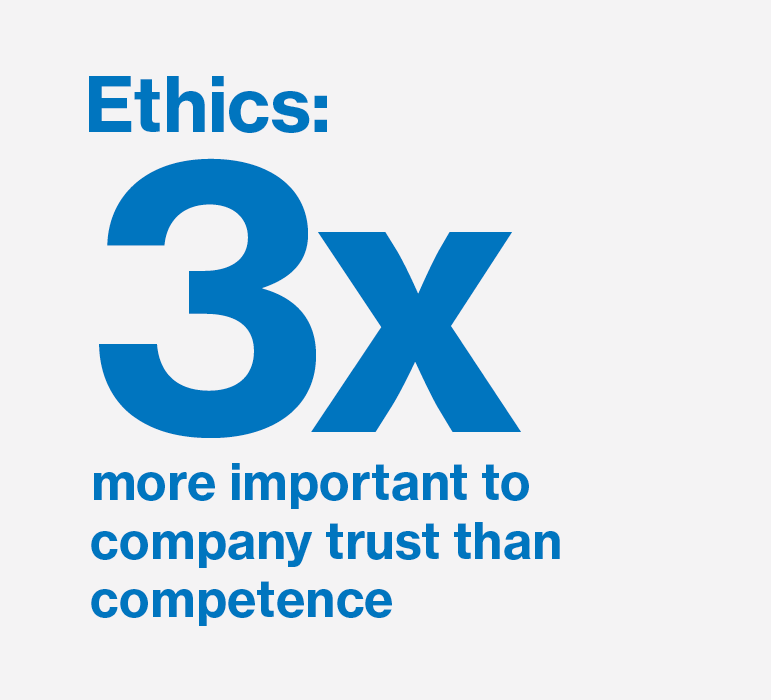Trust must be built through both competence and ethics. For 20 years, the Edelman Trust Barometer has asked respondents to answer a simple question: How much do you trust each institution to do what is right? This year, our research went further, analyzing respondents’ ratings of the competence and the ethics of each institution in more detail. The reason for the general lack of trust? None of the four institutions measured is seen as both competent and ethical.
NGOs and business are tied, with 58 percent of respondents globally saying they trust each. But a deeper look reveals that NGOs, while seen as ethical, are not seen as competent. And business, the only institution described as competent, is not seen as ethical. Competence alone is not enough to create trust in business as an institution.
Data from the Edelman Trust Management suite of analytics and consulting solutions, designed to help global companies measure and manage their trust capital, confirms that competence—being good at what you do—is not enough to earn the benefits of a trust advantage. More than 80 percent of the 600+ companies we have analyzed earn better scores for their competence than they do for ethics-related trust dimensions such as integrity or purpose.
The data collected reveals that a company’s ability—the degree to which it is seen as good at what it does—explains only 24 percent of its measurable trust capital. In comparison, integrity, purpose and dependability drive 76 percent, making it very clear that more than competence, ethics-related dimensions drive the lion's share of company trust capital.
This ethics shortfall may be partially explained by the emphasis companies have traditionally placed on communicating their performance, competence or product quality more so than their commitment to ethics and integrity, or their purpose and vision for the future. The Edelman Trust Management data shows that the proportion of stakeholders who “don’t know enough” to judge a company’s ethics is significantly higher than those who are unfamiliar with a company’s competence.
At the same time, stakeholder expectations have risen. Consumers expect the brands they buy to reflect their values and beliefs, employees want their jobs to give them a sense of purpose, and investors are increasingly focused on sustainability and other ethical commitments as a sign of a company’s long-term operational health and success.
Business is already recognized for its ability to get things done. But to earn trust, companies must make sure that they are acting ethically, and doing what is right. Because for today’s stakeholders, competence is not enough.
Antoine Harary is President of Edelman Intelligence.
Tonia Ries is Global Executive Director, Edelman Intellectual Property.



